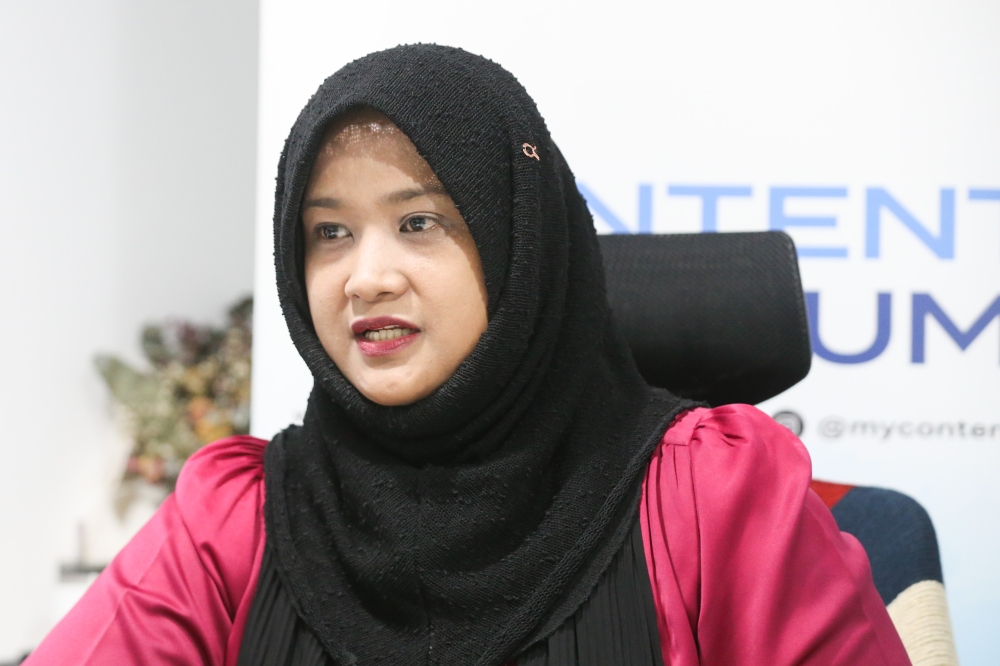Published date
Written by
- Podcasts are gaining traction in Malaysia, with cultural and relatable content driving interest.
- Advertisers value podcasts for their niche, targeted audiences despite smaller listener numbers.
- Malaysian laws permit podcasts to explore controversial topics within ethical and legal limits.
- Flexible formats make podcasts a popular alternative to traditional radio among commuters.
- Celebrities dominate the space, using podcasts as relaxed, unfiltered platforms to connect with fans.
KUALA LUMPUR, Jan 1 — Mamak Sessions, Head Over Heels and Studio Sembang are among the popular podcasts making waves in Malaysia’s growing digital landscape.
As the medium gains traction, the industry faces key challenges, including market potential, advertising appeal, legal constraints, audience preferences and celebrity dominance.
In this feature, Malay Mail dives into these pressing topics, offering exclusive insights from podcasters and the Communications and Multimedia Content Forum of Malaysia (CMCF).
Is there even a market for podcasts in Malaysia?
Brian Tan, 42, podcaster, said yes, and more big names are coming into the scene.
“It will only take one breakthrough moment for podcasting to become as influential as traditional media,” Tan said.
“We think it might have something to do with Malaysia vs Singapore food,” he added, hinting at the cultural conversations that could spark a wider surge in interest.
Keren Bala Devan, 49, podcaster and comedian, agreed.
“People increasingly want content where they feel they’re hearing different points of view from personalities in an honest, engaging way.”
Are podcast listener numbers appealing to advertisers in Malaysia?
Tan believed advertisers aren’t concerned with the platform; they care about the numbers.
He argued that, like most new media, podcasting fosters a more intimate connection with its audience, making it more valuable for advertisers.
“We believe we could sell air to Malaysians if given the opportunity,” he added.
Mikhail Svrcula, 38, podcaster, echoed this view, acknowledging that while podcasts may not yet boast massive listener numbers, they offer a highly niche and targeted audience.
“That’s what makes it appealing to advertisers, the ability to reach a specific segment that is hard to find elsewhere,” he said.

Do Malaysia’s media laws allow podcasts to discuss important or controversial issues?
Communications and Multimedia Content Forum CEO Mediha Mahmood said that Malaysia’s media laws do allow podcasts to discuss important or controversial topics, but they must adhere to the country’s legal framework.
“Anything illegal offline is illegal online,” said Mediha.
The Communications and Multimedia Act 1998 (CMA98) prohibits material that is indecent, false, offensive or menacing, while the Malaysian Communications and Multimedia Content Code provides ethical guidelines for creators.
“It’s important to note that these frameworks are not meant to suppress freedom of expression but to ensure that content aligns with ethical standards, respects societal values and encourages accountability,” Mediha added.

Would Malaysians be interested in serious, in-depth podcasts, or will the market remain dominated by traditional radio-style talk shows?
Both Tan and Mikhail believed that Malaysians are craving content that connects with them in a more relatable and unrestricted way, which suggests a growing interest in serious, in-depth podcasts.
Tan said that podcasts offer creators the freedom to explore topics that traditional radio cannot, often using humour or sound effects to keep the conversation lively.
This flexibility makes podcasts an appealing alternative to traditional radio, especially during long traffic jams.
Mikhail agreed, emphasising that the key to podcast success is offering content that sparks interest.
“Malaysians will engage with anything they find captivating,” he said, reinforcing the idea that the market is likely evolving towards more engaging, varied formats, including podcasts.
Will podcasting continue to be more appealing to celebrities and influencers rather than professional journalists?
Tan is convinced it will.
“The traditional model had journalists asking the questions and celebrities providing the answers,” he said.
“But with podcasts, there are no word counts, no time limits and no need for soundbites.
“Celebrities can share their side of the story in a more relaxed, unfiltered way.
“It feels less manufactured, and they’re even free to eat or drink during the conversation, something a professional journalist would never get to do,” Tan added.
